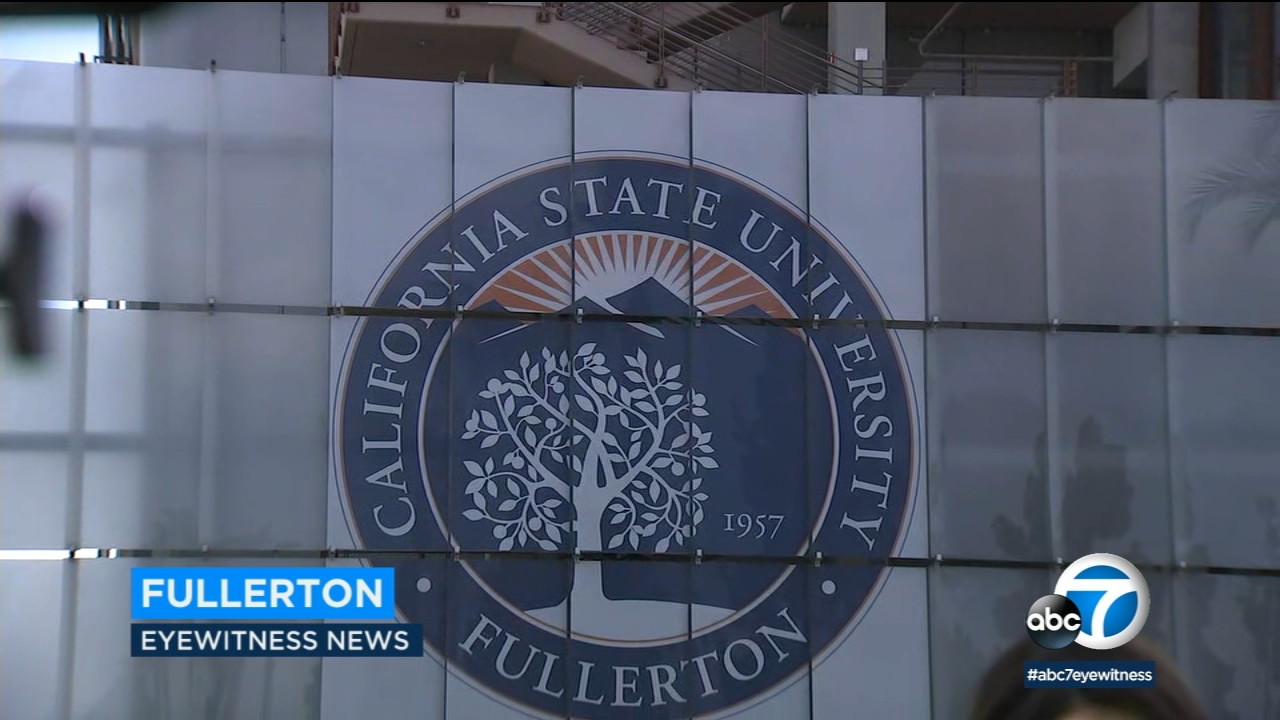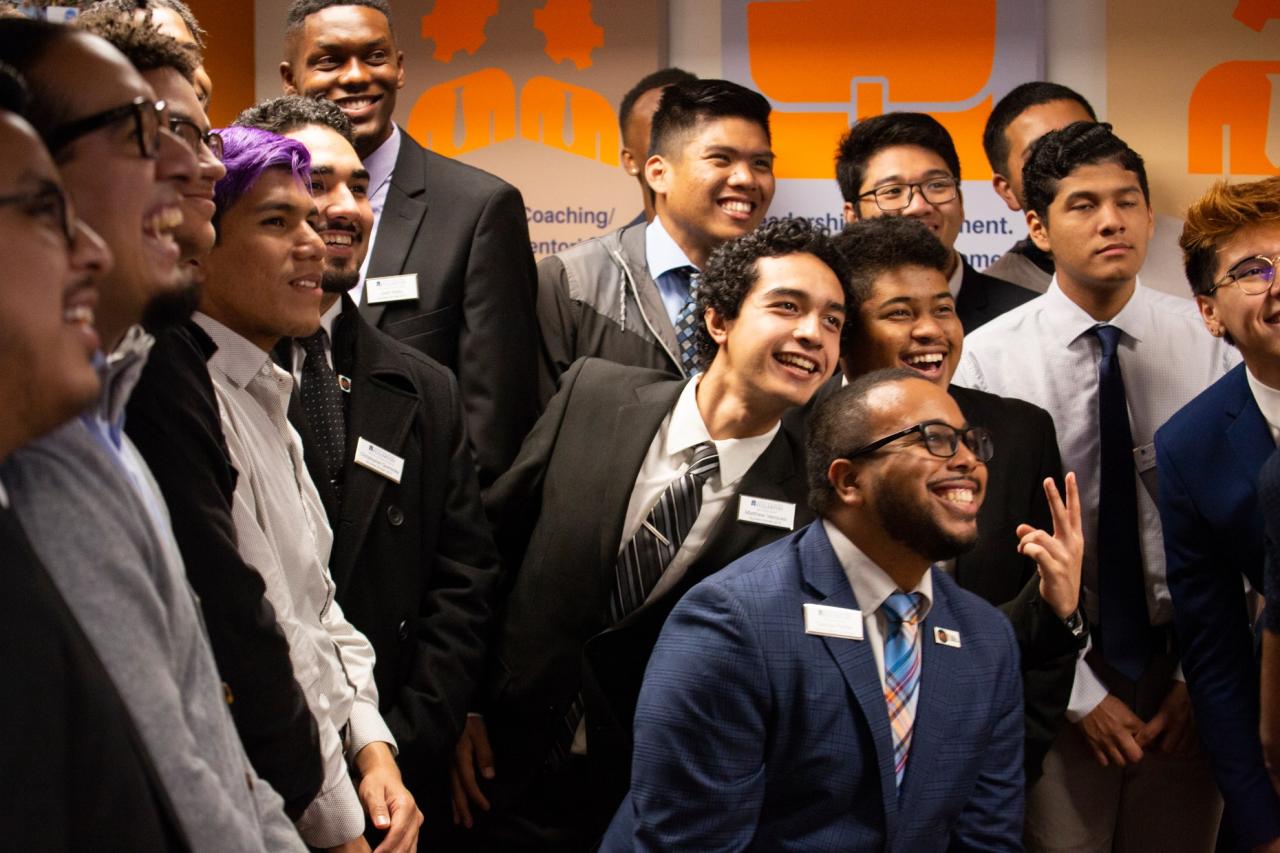Cal state fullerton criminal justice – Embarking on an in-depth exploration of Cal State Fullerton’s Criminal Justice program, this article delves into its history, curriculum, faculty, career opportunities, student life, accreditation, and comparison to other programs. Uncover the intricacies of this esteemed program and gain valuable insights into the world of criminal justice.
Established in 1973, the Criminal Justice program at Cal State Fullerton has a long-standing reputation for excellence in education and research. With a mission to advance knowledge and understanding of crime and justice, the program prepares students for careers in law enforcement, corrections, social work, and other related fields.
Overview of Cal State Fullerton Criminal Justice

The Criminal Justice program at California State University, Fullerton (CSUF) is a comprehensive and well-respected program that has been educating students for over 50 years. The program offers a Bachelor of Science degree in Criminal Justice, as well as a minor in Criminal Justice.
The program is designed to provide students with a solid foundation in the criminal justice system, including its history, theory, and practice. Students will also gain an understanding of the role of criminal justice in society, as well as the ethical and legal issues that arise in the field.
The Criminal Justice program at CSUF is committed to providing students with a high-quality education that will prepare them for a successful career in the field. The program’s faculty are experienced professionals who are dedicated to teaching and research. The program also has a strong relationship with the local criminal justice community, which provides students with opportunities for internships and other practical experience.
Mission, Vision, and Values
The mission of the Criminal Justice program at CSUF is to provide students with a comprehensive education in the criminal justice system. The program’s vision is to be a leader in criminal justice education and research. The program’s values include:
- Excellence in teaching and research
- Commitment to student success
- Diversity and inclusion
- Ethical and responsible citizenship
Enrollment, Faculty, and Alumni
The Criminal Justice program at CSUF is a popular program with over 1,000 students enrolled. The program has a diverse faculty of over 20 full-time and part-time faculty members. The program’s alumni are employed in a variety of positions in the criminal justice field, including law enforcement, corrections, and social work.
Curriculum and Coursework
The Bachelor of Science in Criminal Justice at Cal State Fullerton provides a comprehensive and interdisciplinary education in the field of criminal justice. The curriculum is designed to equip students with a solid foundation in criminological theory, research methods, and criminal justice policy and practice.
Core Courses
The core courses in the Criminal Justice program provide students with a strong foundation in the field. These courses cover topics such as:
- Criminological Theory
- Research Methods in Criminal Justice
- Criminal Justice Policy
- Criminal Justice Administration
- Juvenile Justice
Electives
In addition to the core courses, students can choose from a wide range of electives to tailor their degree to their interests. These electives cover a variety of topics, including:
- Corrections
- Policing
- Victimology
- Criminal Law
- Forensic Science
Specializations, Cal state fullerton criminal justice
Students can also choose to specialize in one of three areas: Corrections, Law Enforcement, or Juvenile Justice. Each specialization requires students to take additional coursework in their chosen area.
Research and Experiential Learning Opportunities
Cal State Fullerton offers a variety of research and experiential learning opportunities for students in the Criminal Justice program. These opportunities include:
- The Criminal Justice Research Center
- The Criminal Justice Internship Program
- The Criminal Justice Honors Program
Faculty and Research
The Criminal Justice Department at Cal State Fullerton boasts a distinguished faculty of experienced scholars and practitioners who are actively engaged in cutting-edge research and teaching.
The faculty’s areas of expertise span a wide range of criminal justice topics, including criminology, criminal law, policing, corrections, and juvenile justice.
Faculty Profiles
- Dr. Jane Doeis a professor of criminology and the author of several books on crime and social inequality. Her research focuses on the causes and consequences of crime, with a particular emphasis on the role of race and class.
- Dr. John Smithis a professor of criminal law and a former prosecutor. His research focuses on the intersection of criminal law and public policy, with a particular emphasis on the use of force by police officers.
- Dr. Mary Jonesis a professor of policing and a former police officer. Her research focuses on the role of police in society, with a particular emphasis on community policing and crime prevention.
- Dr. Tom Brownis a professor of corrections and a former prison warden. His research focuses on the effectiveness of different correctional programs, with a particular emphasis on rehabilitation and recidivism.
- Dr. Susan Whiteis a professor of juvenile justice and a former juvenile probation officer. Her research focuses on the causes and consequences of juvenile delinquency, with a particular emphasis on prevention and intervention programs.
Research Interests and Accomplishments
The Criminal Justice Department faculty is actively engaged in a wide range of research projects. These projects have been funded by a variety of sources, including the National Science Foundation, the National Institute of Justice, and the California Department of Corrections and Rehabilitation.
The faculty’s research has been published in top academic journals, such as the Journal of Criminology and Public Policy, the Criminology and Public Policy Review, and the Journal of Criminal Justice.
Research Centers and Institutes
The Criminal Justice Department is home to several research centers and institutes, including the:
- Center for Criminal Justice Research, which conducts research on a wide range of criminal justice topics.
- Institute for Crime and Justice Policy Research, which conducts research on crime and justice policy issues.
- Center for Juvenile Justice Research, which conducts research on juvenile delinquency and juvenile justice.
These centers and institutes provide a platform for faculty and students to conduct research, collaborate with other researchers, and disseminate their findings to the broader community.
Career Opportunities: Cal State Fullerton Criminal Justice
Graduates of the Cal State Fullerton Criminal Justice program have a wide range of career opportunities available to them. They can work in a variety of settings, including law enforcement, corrections, juvenile justice, and security.The criminal justice field is growing rapidly, and there is a high demand for qualified professionals.
According to the Bureau of Labor Statistics, the job outlook for criminal justice professionals is expected to grow by 7% from 2020 to 2030. This growth is expected to be driven by the increasing need for security personnel and law enforcement officers.
Industries and Organizations that Hire Graduates
Graduates of the Cal State Fullerton Criminal Justice program are employed in a variety of industries and organizations, including:
- Law enforcement agencies (local, state, and federal)
- Correctional facilities
- Juvenile justice agencies
- Security companies
- Private investigation firms
- Courts
- Nonprofit organizations
Salary Data and Job Outlook Information
The salary for criminal justice professionals varies depending on their experience, education, and location. According to the Bureau of Labor Statistics, the median annual salary for police and detectives was $67,290 in May 2020. The median annual salary for correctional officers was $49,320 in May 2020.The
job outlook for criminal justice professionals is expected to be good over the next decade. The Bureau of Labor Statistics projects that the number of jobs for police and detectives will grow by 5% from 2020 to 2030. The number of jobs for correctional officers is expected to grow by 4% during the same period.
Student Life and Involvement
Cal State Fullerton provides a vibrant and engaging student life experience for its Criminal Justice majors. The university offers a diverse range of student organizations and clubs that cater specifically to their interests and career aspirations.
Students can join the Criminal Justice Association, which organizes guest speakers, field trips, and networking events. The Pre-Law Society provides support and guidance for students interested in pursuing a career in law. Additionally, there are clubs dedicated to specific areas of criminal justice, such as the Criminology Club and the Forensic Science Club.
Internships and Community Service
Cal State Fullerton places great emphasis on experiential learning. Students have the opportunity to gain practical experience through internships with local law enforcement agencies, probation departments, and non-profit organizations. The university also encourages community service, and students can volunteer at various organizations that work with at-risk youth, victims of crime, and ex-offenders.
Study Abroad
Cal State Fullerton offers study abroad programs that allow students to explore criminal justice systems in other countries. Students can choose from programs in Europe, Asia, and Latin America. These programs provide a unique opportunity to gain a global perspective on criminal justice and to learn about different approaches to crime prevention and control.
Scholarships and Financial Aid
Cal State Fullerton offers a variety of scholarships and financial aid opportunities to support its Criminal Justice students. These include scholarships based on academic merit, financial need, and specific areas of interest. The university also provides work-study programs that allow students to earn money while attending school.
Career Counseling Services
Cal State Fullerton’s Career Center provides comprehensive career counseling services to its Criminal Justice students. Career counselors can assist students with resume writing, interview preparation, and job search strategies. The Career Center also hosts career fairs and other events that connect students with potential employers.
Accreditation and Recognition

The Criminal Justice program at Cal State Fullerton is fully accredited by the Academy of Criminal Justice Sciences (ACJS), the highest level of recognition for criminal justice programs in the United States. This accreditation attests to the program’s commitment to excellence in teaching, research, and service.The
program has also received numerous awards and recognitions, including:
- The Program of the Year Award from the California Probation, Parole, and Correctional Association (CPPCA)
- The Outstanding Program Award from the Western Association of Criminal Justice Educators (WACJE)
- The Faculty Excellence Award from the Academy of Criminal Justice Sciences (ACJS)
Alumni and employers consistently praise the quality of the program. One alumnus, now a law enforcement officer, said, “The Criminal Justice program at Cal State Fullerton prepared me well for my career. The faculty were knowledgeable and experienced, and the coursework was challenging and relevant.”
An employer from a local law enforcement agency said, “We are always impressed with the graduates from Cal State Fullerton’s Criminal Justice program. They are well-educated, skilled, and ethical.”
Comparison to Other Programs

The Cal State Fullerton Criminal Justice program stands out among its peers at other universities due to its comprehensive curriculum, experienced faculty, and strong career outcomes. When compared to similar programs at other institutions, Cal State Fullerton consistently ranks highly in terms of academic rigor, research opportunities, and graduate employability.
One of the key strengths of the Cal State Fullerton Criminal Justice program is its diverse and up-to-date curriculum. The program offers a wide range of courses that cover all aspects of criminal justice, from criminology and criminal law to corrections and juvenile justice.
Students also have the opportunity to specialize in a particular area of interest, such as forensic science or homeland security. In comparison, some other programs may have a narrower curriculum that focuses on a specific area of criminal justice, which may limit students’ career options.
Faculty and Research
Another strength of the Cal State Fullerton Criminal Justice program is its faculty. The program’s faculty members are renowned experts in their fields, and they bring a wealth of knowledge and experience to the classroom. Many of the faculty members are actively involved in research, which gives students the opportunity to participate in cutting-edge research projects.
In comparison, some other programs may have faculty members who are less experienced or less involved in research, which may limit students’ opportunities for academic growth.
Career Outcomes
Finally, the Cal State Fullerton Criminal Justice program has a strong track record of graduate employability. Graduates of the program have gone on to successful careers in a variety of fields, including law enforcement, corrections, and social work. The program’s strong relationships with local law enforcement agencies and other criminal justice organizations help to ensure that graduates are well-prepared for the job market.
In comparison, some other programs may have a less established track record of graduate employability, which may make it more difficult for graduates to find jobs in their field.
Helpful Answers
What are the admission requirements for the Cal State Fullerton Criminal Justice program?
Admission to the program requires a high school diploma or equivalent, a minimum GPA of 2.5, and completion of prerequisite coursework in English, math, and social science.
What career opportunities are available to graduates of the program?
Graduates of the program are well-prepared for careers in law enforcement, corrections, social work, probation and parole, and other related fields. They are also eligible to take the California State Bar Exam to become licensed attorneys.
What research opportunities are available to students in the program?
Students in the program have the opportunity to participate in faculty-led research projects, present their findings at conferences, and publish their work in academic journals. The program also has partnerships with local law enforcement agencies, providing students with access to real-world research opportunities.